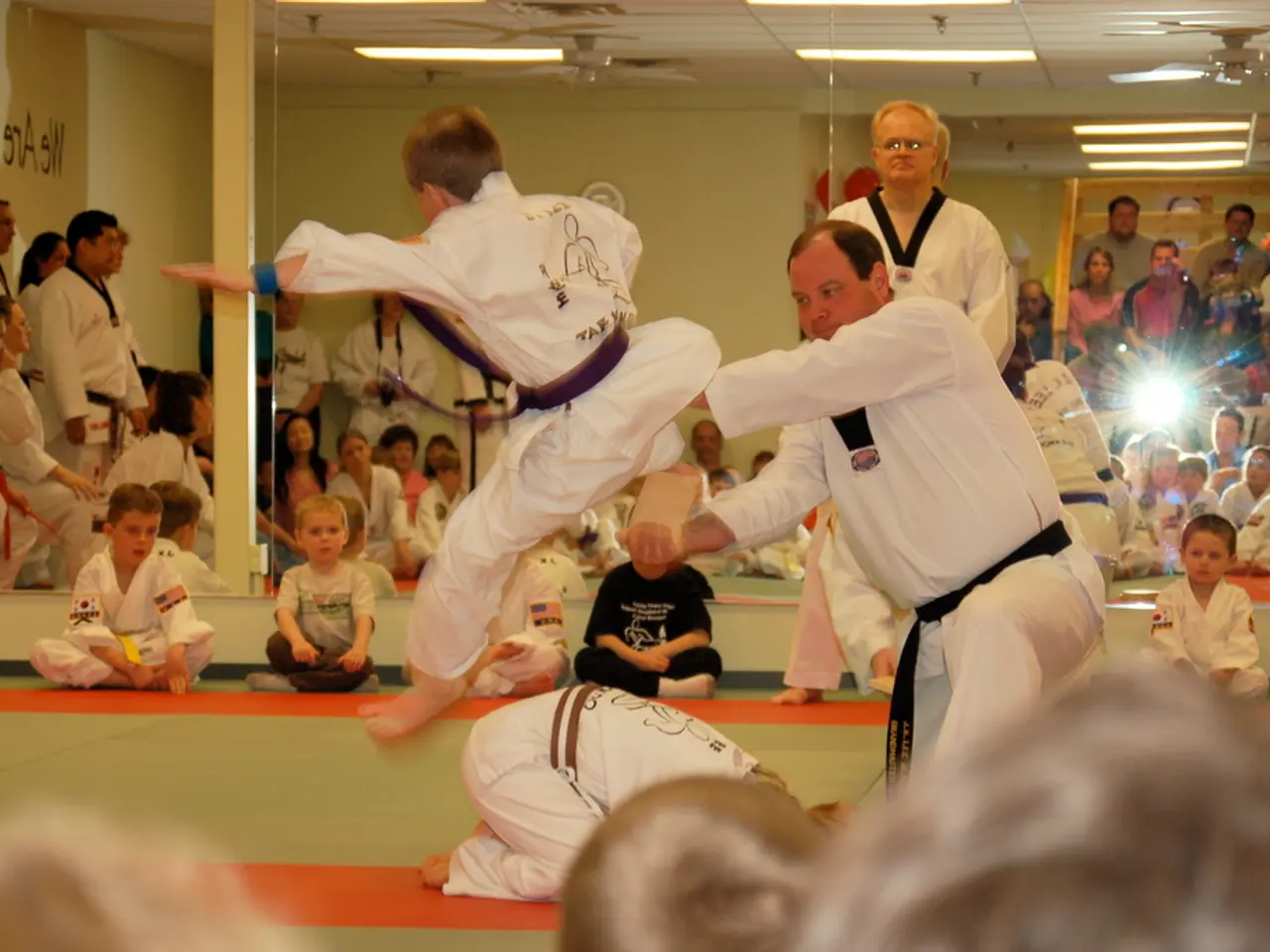Shielding Athletes: FIFA's Crusade Against Online Hate Speech
FIFA filters out millions of disdainful messages for athletes
The FIFA's Social Media Protection System (SMPS), a tech-savvy solution to combat cyberbullying, has saved athletes from an avalanche of hate messages on social media platforms since 2022. This shield, first deployed at the FIFA World Cup Qatar, has been utilized during 23 tournaments, including qualifiers and friendly matches, as announced by FIFA.
The SMPS in Action
This system leverages AI technology to sift through millions of social media posts and comments, swiftly identifying and banishing hate speech, threats, and discriminatory content before it reaches the eyes of players. Its primary aim is to safeguard athletes, their families, friends, and followers from the digital onslaught of animosity and potential mental strain.
SMPS in Action - A Closer Look
- AI-driven Content Filtering: Automated scanning of posts and messages that mention players or teams, spotting abusive language and hate speech.
- Human Review: AI-flagged content undergoes a meticulous examination by trained moderators to minimize false positives and ensure standardized action.
- Platform Partnership: Partnerships with heavyweights like Twitter, Facebook, and Instagram enable rapid content removal and suspension of offending accounts.
- Support for Athletes: Equips athletes with tools to report abuse and offers emotional support as needed.
Progress Over Time
Since its debut at the 2022 World Cup, the SMPS has blocked more than ten million hateful messages aimed at teams, coaches, and players. To date, over 33 million posts and comments on 15,302 accounts have been analyzed.
The Power of SMPS in Action Today
- Reduced Visibility of Hateful Messages: Independent monitoring groups and FIFA’s own reports reveal a diminished volume of hate speech visible during and post-tournaments, indicating improved real-time detection and removal.
- Swift Response: Collaboration with social media companies shrinks the time gap between abusive content's publication and removal, minimizing athlete exposure.
- Enhanced Awareness: The presence of SMPS instills a sense of accountability among fans and commentators, contributing to a collective deterrent effect.
- Challenges Ahead:
- Variable Cooperation: SMPS's effectiveness is heavily reliant on partnerships with external platforms, whose rules concerning hate speech may vary.
- Adaptive Haters: Users continue to evolve tactics to escape AI detection, such as using coded language, emojis, or private messages.
- Limited Coverage: SMPS majorly targets tournament periods and official channels, leaving gaps in coverage during off-seasons or unofficial forums.
Perceptions and Feedback
- A study by a digital rights NGO in late 2023 lauded FIFA for championing innovation, but flagged concerns over the persistence of abuse in private direct messages.
- Athletes' testimonials yield a mixed bag: many feel safe, while others still encounter hateful messages that slip past filters.
In Conclusion
Since its introduction at the 2022 World Cup, the SMPS constitutes a meaningful stride in guarding athletes against cyberbullying during tournaments. Its ability to reduce the volume and visibility of hate speech in public social media is undeniable. However, eradicating all forms of abuse, especially private or less monitored ones, requires continuous advancements in AI detection, stronger platform partnerships, and broader coverage.
- The Commission, in its pursuit of digital safety, has not yet adopted a proposal for a directive that would expand the FIFA's Social Media Protection System (SMPS) beyond the realm of sports and tournaments, to encompass general-news, social-media, entertainment, crime-and-justice, and sports like football.
- Despite the success of the SMPS in shielding athletes from cyberbullying, concerns have been raised in a study by a digital rights NGO in late 2023, regarding the persistence of hateful messages in private direct messages, which remain challenging areas for the system.
- As the SMPS continues to evolve and safeguard athletes from hate speech, it presents a model that could potentially be adopted for directives, aiming to protect individuals in various sectors, such as entertainment, general-news, and crime-and-justice, from online abuse and hate speech.







